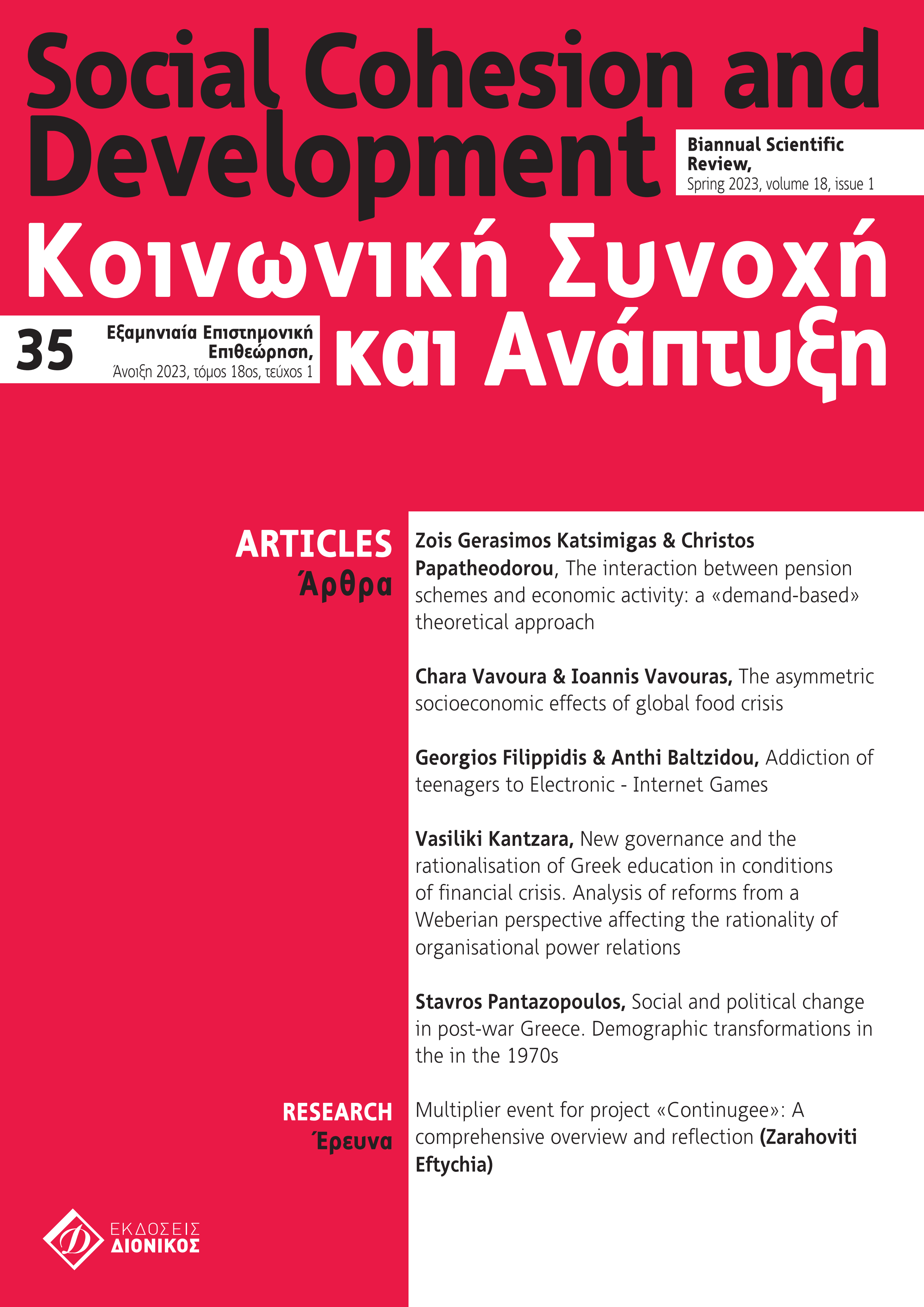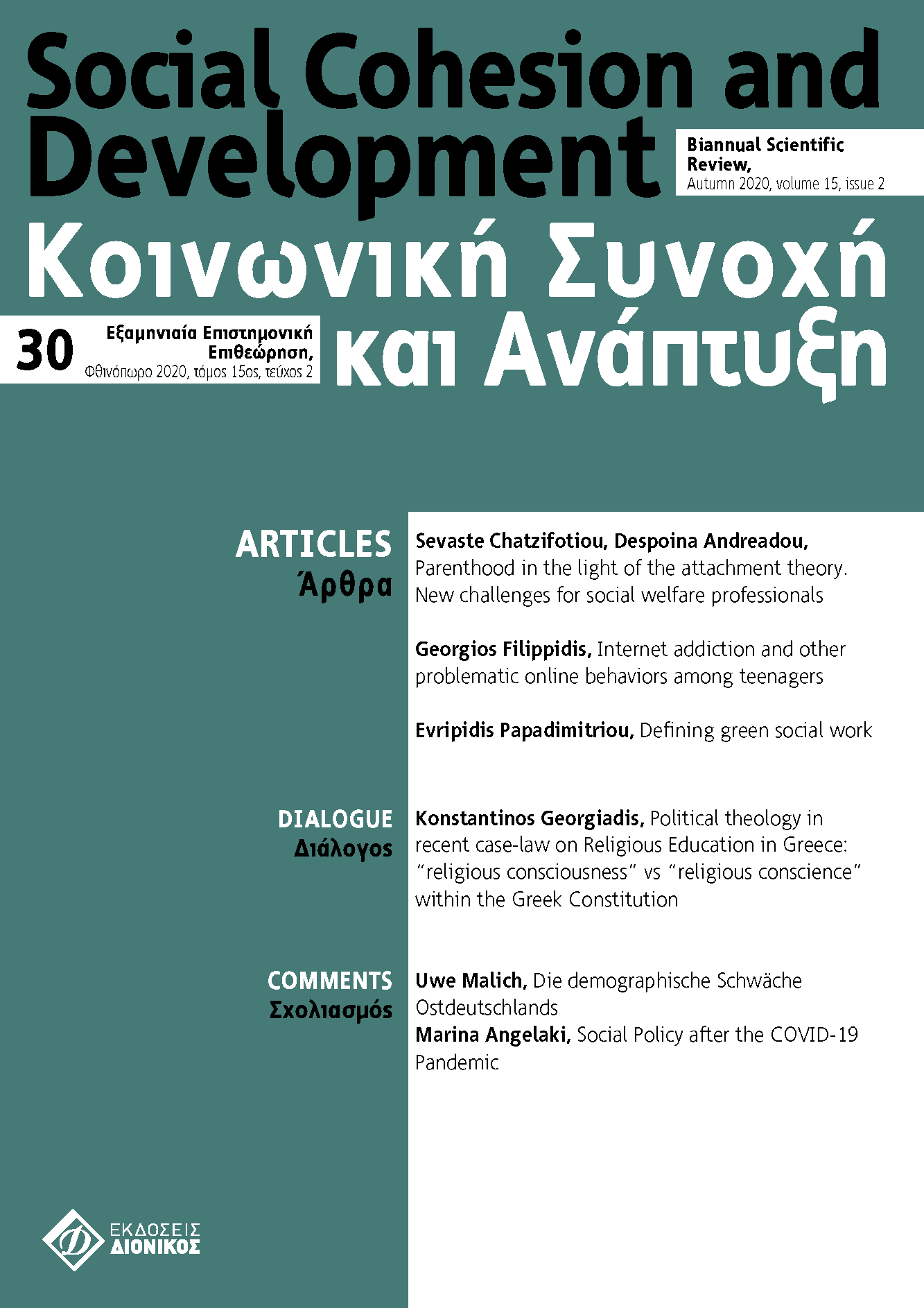Εθισμός ανηλίκων στα ηλεκτρονικά – διαδικτυακά παιχνίδια. Έρευνα σε μαθητές πρωτοβάθμιας εκπαίδευσης

Abstract
The computer and the Internet are now an everyday and integral part of the lives of children and teenagers. An extension of these are electronic games, a basic type of entertainment and communication for young people with their peers. Their content is entertaining, however their unrestricted use can be a cause for the manifestation of addictive behaviors and have a negative effect on the sensitive personality of minors. This article, therefore, deals with the content of electronic- online games and
investigates when their role becomes harmful
for the physical, social and mental health of children.
Article Details
- Zitationsvorschlag
-
Filippidis, G., & Mpaltzidou, A. (2024). Εθισμός ανηλίκων στα ηλεκτρονικά – διαδικτυακά παιχνίδια. Έρευνα σε μαθητές πρωτοβάθμιας εκπαίδευσης. Social Cohesion and Development, 18(1), 31–51. https://doi.org/10.12681/scad.37324 (Original work published 30. Juni 2023)
- Ausgabe
- Bd. 18 Nr. 1 (2023): ¨Νο 35
- Rubrik
- Articles

Dieses Werk steht unter der Lizenz Creative Commons Namensnennung - Nicht-kommerziell - Weitergabe unter gleichen Bedingungen 4.0 International.
Authors who publish with this journal agree to the following terms:
- Authors retain copyright and grant the journal right of first publication with the work simultaneously licensed under a Creative Commons Attribution Non-Commercial License that allows others to share the work with an acknowledgement of the work's authorship and initial publication in this journal.
- Authors are able to enter into separate, additional contractual arrangements for the non-exclusive distribution of the journal's published version of the work (e.g. post it to an institutional repository or publish it in a book), with an acknowledgement of its initial publication in this journal.
- Authors are permitted and encouraged to post their work online (preferably in institutional repositories or on their website) prior to and during the submission process, as it can lead to productive exchanges, as well as earlier and greater citation of published work (See The Effect of Open Access).



